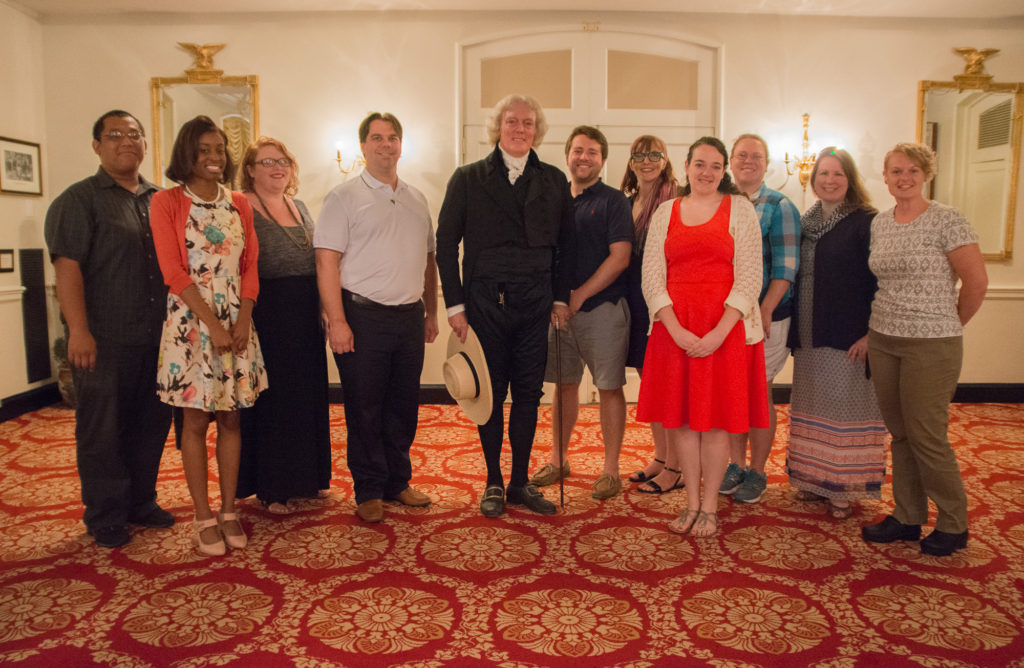
By Jordan Edwards
On July 27-31, the 2016 Baptist Joint Committee Fellows met in Colonial Williamsburg for the BJC Fellows Seminar. The 10 members of this year’s class hailed from states across the country, with career paths ranging from ministry and education to law and social work. Although they brought different perspectives, expectations and denominational backgrounds, each arrived with one purpose: to become better advocates for religious liberty.
Over the course of four days, the Fellows learned about religious liberty from legal, historical and theological perspectives. BJC Executive Director Brent Walker gave the Fellows a primer on religious liberty issues and policies in the United States. He explained how the Constitution provides protection for both “no establishment” of religion and the free exercise of one’s faith. He also spoke about his work standing against anti-Muslim rhetoric and refuted the false idea that the United States is a “Christian nation” in a legal sense. He also provided an overview of the BJC’s history and the long track record of working with coalition partners on issues related to religious liberty.
Following an introduction about the BJC’s legal work from General Counsel Holly Hollman, Associate General Counsel Jennifer Hawks provided an in-depth view of court cases that have shaped religious liberty law and policy. She also looked at some of the landmark religious liberty legislation passed by Congress over the years, including the Equal Access Act and the federal Religious Freedom Restoration Act, which were both championed by the BJC. Hawks also touched on recent Supreme Court cases where the BJC has been involved, including Greece v. Galloway, Zubik v. Burwell and Trinity Lutheran Church v. Pauley. By the last full day of the seminar, the Fellows were able to apply both Religion Clauses and make arguments for and against different sides in a church-state case.
But their education extended well beyond the classroom. At the beginning of the Seminar, the Fellows took an extended tour of the historic grounds at Colonial Williamsburg. Not only did they learn about everyday life during colonial times and see sites like the Governor’s Palace, but they also discovered how people worshipped and practiced their faith.
“The tour was a great way to start the seminar,” said Ashton Wells, a recent graduate of Central Baptist Theological Seminary. “It gave us a unique perspective into the world the Founders lived in. The best part was sitting in a church box learning about Virginia’s law on mandatory church attendance and reflecting on the implications of forced religion.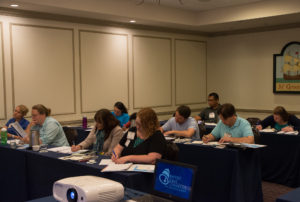 ”
”
Few people know more about the struggles of Colonial Americans to practice their faith than professor Michael Meyerson. The constitutional law expert, who teaches at the University of Baltimore School of Law, wrote the book Endowed By Our Creator, which details the Founding Framers’ push to make religious liberty a bedrock of the newly formed United States. A former Shurden Lecturer, he also led educational sessions at last year’s seminar. During a pair of lectures, Meyerson described the plight of Baptist and Methodist preachers who were thrown in jail for preaching the Gospel without a license. He also mentioned the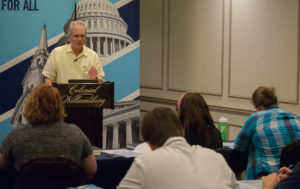 contributions of George Washington, whom Meyerson said was a strong advocate of religious liberty in addition to his role as general.
contributions of George Washington, whom Meyerson said was a strong advocate of religious liberty in addition to his role as general.
A trip to Colonial Williamsburg wouldn’t be complete without interacting with historical interpreters. The Fellows listened to rousing stories from an actor portraying Gowan Pamphlet, the first black ordained Baptist minister in America. Pamphlet spoke of his call to the pulpit while still a slave, as well as his near-deportation to Jamaica. They also heard from Thomas Jefferson, who explained why he fought so hard to secure religious liberty for all 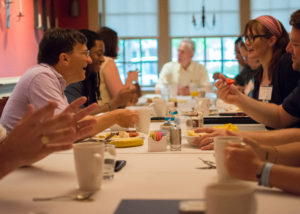 Americans. He also took time to answer a multitude of questions from the Fellows and staff.
Americans. He also took time to answer a multitude of questions from the Fellows and staff.
Between classroom sessions, the Fellows enjoyed getting to know each other and members of the BJC staff. Over meals, they chatted about the roles each play in their own communities as well as their theological views. Meyerson, who was present for several of the meals, talked about the origins of his book and the unexpected episodes in American history he uncovered during his research.
Many of the fellows joined BJC Education and Outreach Specialist Charles Watson Jr. on a bike ride through much of Colonial Williamsburg and the campus of the College of William and Mary. Stops included the oldest surviving college building in the United States and a statue garden dedicated to the members of the Tyler family who attended the college, including President John Tyler.
The 2016 class of BJC Fellows left Colonial Williamsburg with plans like developing religious liberty curricula for youth and engaging in interfaith dialogue with local leaders and clergy. After four intense days, they gained new perspectives and tools that will help them move forward as advocates.
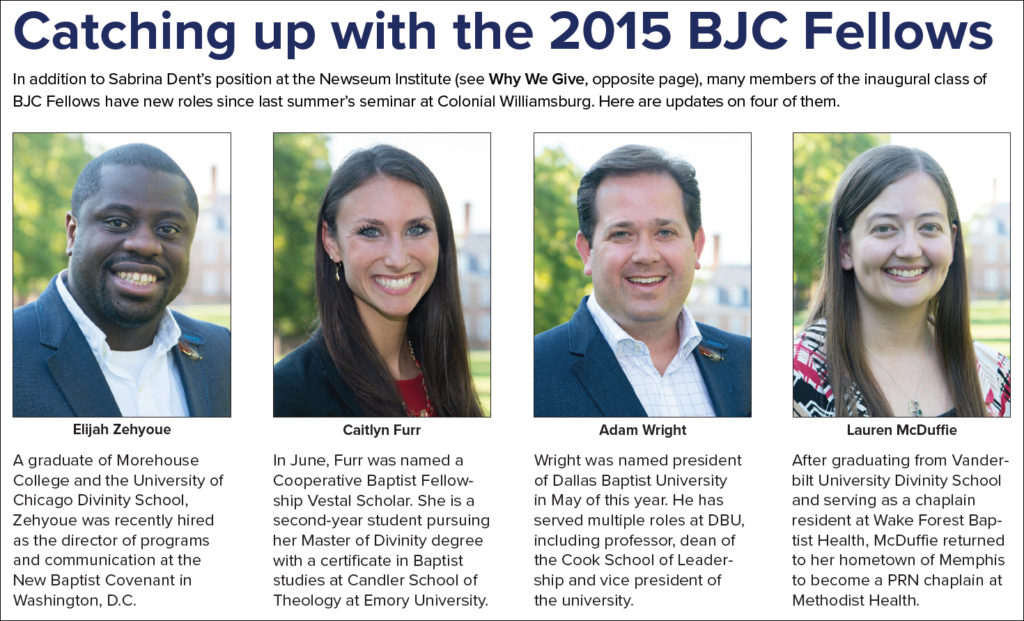
From the July/August 2016 edition of Report from the Capital. You can also read the digital version of the magazine or view it as a PDF. For more on the BJC Fellows Program, visit BJConline.org/Fellows.




